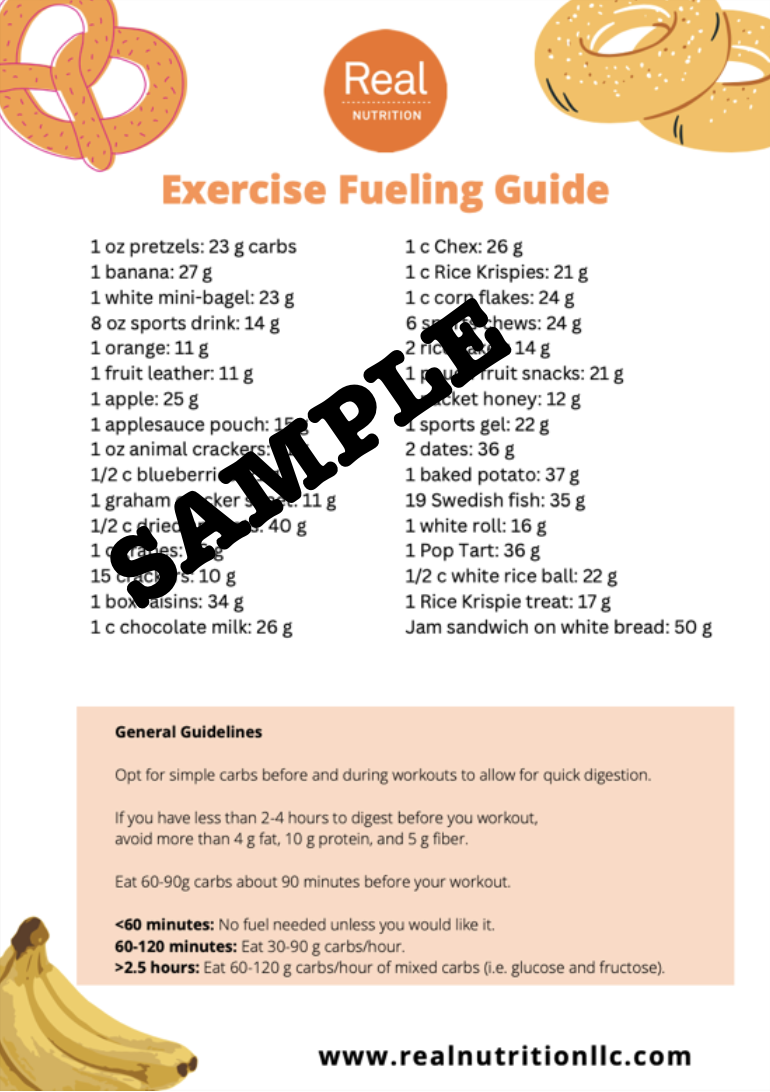Why carbs are every triathlete’s friend
When I did my first half-iron distance triathlon, I finished but it wasn't pretty. As a dietitian, I knew it was important to hydrate and fuel during the race. But I didn't really know what to eat, what to drink, and how to create a race-day plan specific to my pace, sweat rate, and sodium losses.
I ate the wrong things and ended up feeling terrible during the race. At the end, I felt nauseated and bonked hard. I took me a couple days just to recover.
Then I went back to school, got a master's degree in sports nutrition, the International Olympic Committee's Diploma in Sports Nutrition, and became a Board Certified Specialist in Sports Dietetics. Now I have the tools to not only craft a beautiful and effective fueling plan for myself, but I've helped hundreds of clients do the same thing.
One thing I’ve learned is the importance of carbohydrates for training and racing. Not just any carb. Simple, easy-to-digest carbs timed and dosed correctly can do wonders for your racing.
Here's just a few things carbs do for your body:
Primary fuel for most types of exercise
Preferred fuel for your brain
Regulate blood sugar
Support immune function
Contribute to glycogen stores (which help regulate blood sugar and fuel muscle contraction)
Preserves lean muscle by preventing your body from using it as a fuel source
Maintain red blood cell function
As a triathlete, it's especially important to eat enough carbs in your diet to fuel your training and promote recovery. If you are shorting yourself on carbohydrates, you may be:
Fatigued during a workout
More prone to illness
More prone to injury
Missing out on training gains
Have menstrual disturbances
Experiencing Relative Energy Deficiency in Sport (RED-S)
Be sure to nourish yourself by including high-quality carbs such as whole grains, fruits, dairy, vegetables, lentils, and beans in your everyday meals. For pre-workout and intra-workout fueling, opt for low fiber carbs for easier digestion and fuel availability, such as pretzels or a white mini-bagel.
Download our free carbohydrate fueling guide so you can optimize your fueling. Having a solid fueling plan will help you feel good during training, prolong fatigue, prevent bonking, promote faster recovery, and have a great triathlon season!
~This is general information only and not medical advice. Always check with your healthcare provider before undergoing any diet or lifestyle change.
~Marisa Michael, MSc, RDN, CSSD is a board certified specialist in sports dietetics and holds a master’s degree in sports nutrition and the International Olympic Committee’s Diploma in Sports Nutrition. She helps athletes and active people improve health, performance, and relationship with food & body. She offers one-on-one coaching, workshops, and writing services. Find her online at realnutritionllc.com or on Instagram @realnutritiondietitian.
Want more information? Click to see our full line of amazing on-demand courses!


